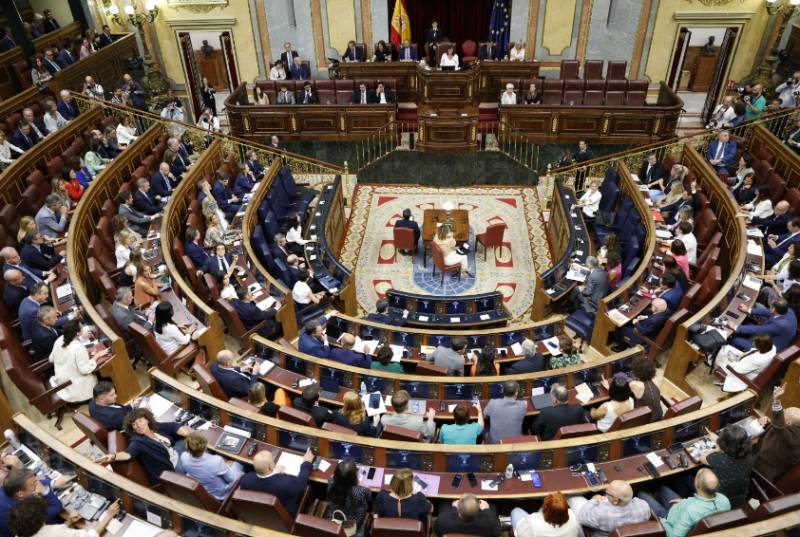article_detail
Date Published: 20/09/2023
Catalan, Galician and Basque languages granted parliamentary status in Spain
Spain still faces an uphill battle to convince the EU to officially recognise the languages

In a historic move to recognise linguistic diversity in Spain, the government has voted in favour of granting parliamentary status to the Catalan, Basque and Galician languages. This means that the minority languages can now be used in parliamentary sessions, debates, and official documents alongside Spanish.
The ruling, which aims to help the chamber “progress along the path of linguistic plurality” was pushed through by the acting PSOE government headed by Pedro Sánchez at the ongoing request of Catalan pro-independence parties. On the other hand, the landmark change was roundly rejected by opposition parties PP and VOX, who insist that Sánchez only backed the reform because he needs the support of the controversial separatist parties if he is to have any hope of forming the next Spanish government.
While the move will have to go through a formal vote later in the week, the changes have already been implemented. Socialist councillor José Ramón Besteiro, who was the first to address colleagues in his native Galician on Tuesday morning, September 19, said it was an honour to celebrate Spain’s “cultural and linguistic riches.”
Those opposed to the diversifying move were less impressed however, and VOX caused quite a stir when they dropped their translation earpieces onto the president’s empty chair before storming out of the building. Sánchez, conversely, is currently attending EU meetings in New York, having recovered from a recent Covid infection.
“Diversity is not detrimental to unity,” Besteiro argued on Tuesday, adding that “The recognition of the normal use of languages ​​in Congress is the overcoming of a historical anomaly.”
According to official Spanish figures, 9.1 million people speak Catalan, while 2.6 million and 1.1 million speak Galician and Basque respectively.
In another move that the opposition claims is intended to curry favour with the Catalan pro-independence movement, the government is leaning on Brussels to also officially recognise the three languages, a request that has had a lukewarm reception at best.
While EU ministers haven’t put a veto on the table, they have postponed any decision for now, asking for more time to study and debate the proposal as well as legal reports, a cost estimate and an assessment of what the impact would be on the functioning of the European Union.
Spain, for its part, has offered to assume all resulting expenses and has reiterated that the move would be “good for Europe” since it is in line with the “multilingualism objectives included in Article 3 of the Treaties.”
And in a surprising move that comes as no great shock to the opposition, President Sánchez has suggested that Brussels “prioritise Catalan” and leave a decision on the other two languages for later.
Image: Twitter @gomezdcelis
Loading
Sign up for the Spanish News Today Editors Roundup Weekly Bulletin and get an email with all the week’s news straight to your inbox
Special offer: Subscribe now for 25% off (36.95 euros for 48 Bulletins)
OR
you can sign up to our FREE weekly roundup!
Read some of our recent bulletins:
Discount Special Offer subscription:
36.95€ for 48 Editor’s Weekly News Roundup bulletins!
Please CLICK THE BUTTON to subscribe.
(List price 3 months 12 Bulletins)
Read more stories from around Spain:
Contact Spanish News Today: Editorial 966 260 896 /
Office 968 018 268



























